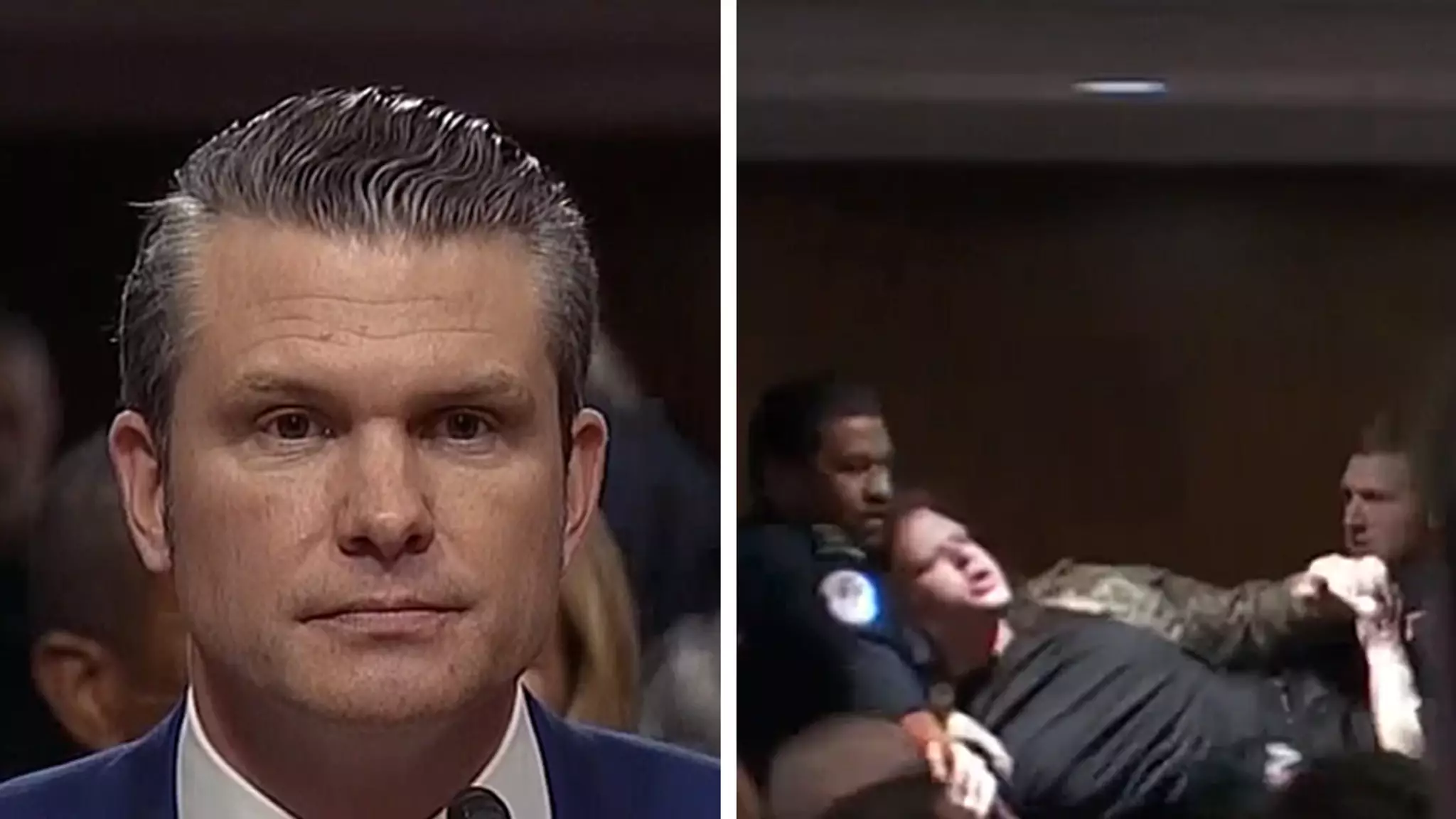Pete Hegseth’s confirmation hearing for the position of U.S. Secretary of Defense rapidly descended into disorder. Multiple protesters disrupted the proceedings, turning what could have been a solemn and focused event into a battleground for ideological clashes. Tensions surged as Hegseth, a former Fox News anchor, was in the midst of thanking his supporters for their unwavering backing when an elderly man in the audience shouted accusations of misogyny at him. This event exemplifies the contentious atmosphere surrounding Hegseth’s nomination and underscores the polarization prevalent in contemporary U.S. politics.
In a notable demonstration of dissent, at least three individuals were forcibly removed from the hearing room, indicating a clear opposition to Hegseth’s views and the overall proceedings. One protester, a woman, voiced her concerns passionately, only to be swiftly escorted out by security personnel. In a particularly dramatic instance, a male protester was carried away by the U.S. Capitol Police, encapsulating the intensity of the moment. This tapestry of voices dissenting in a formal government setting reflects a broader narrative of public unrest regarding military policies and the role of women in combat.
In stark contrast to the uproar surrounding him, Hegseth displayed remarkable composure. Instead of allowing the interruptions to derail his presentation, he maintained his poise and patiently awaited the restoration of order. Such a response reveals Hegseth’s familiarity with contentious public discourse, possibly indicating that he anticipated backlash due to his controversial statements, including remarks regaling the notion that military standards have been relaxed to accommodate women. His calm demeanor not only showcases his ability to handle pressure but also hints at a calculated approach to countering dissent.
Underlying Issues Translated into Protest
The protests at Hegseth’s hearing were not merely spontaneous outbursts but rather reflections of deeper societal debates concerning gender roles in the military. The assertion that women should not serve in combat has been a contentious issue. Many advocates argue that such statements perpetuate outdated norms, while opponents of Hegseth’s perspective feel that it undermines the strides made towards equality in armed services. The protestors embody a significant portion of the populace who are not only advocating for women’s rights but also expressing broader issues of systemic inequality.
As Hegseth moves forward in the confirmation process, the events of the hearing may play a pivotal role in public perception of his candidacy. The disruptions serve as a reminder that his views are met with serious opposition, potentially complicating his position as Secretary of Defense within the diverse ideological landscape of contemporary America. The juxtaposition of calm and chaos at his confirmation hearing encapsulates the complexities of modern governance, where the intersection of media, public opinion, and policy continues to unfold dramatically. As Hegseth navigates the minefield of political sentiment, his ability to articulate policies and engage with dissent will be crucial in determining his effectiveness in a highly scrutinized role.

Leave a Reply